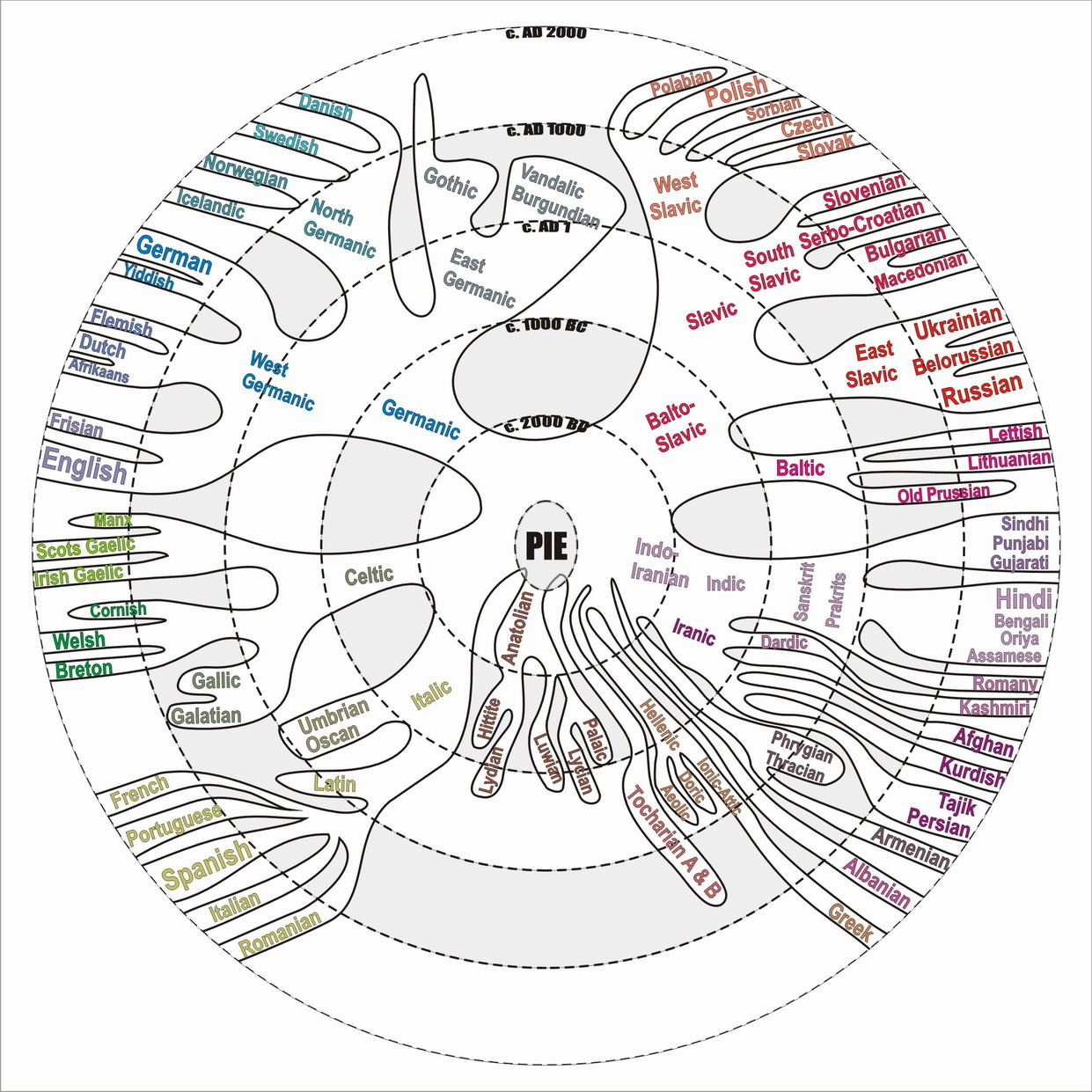Foreign Language?
By pgn
@pgntwo (22408)
Derry, Northern Ireland
October 4, 2015 10:30am CST
A discussion on another thread here on myLot started me wondering: How close are we, linguistically-speaking?
There is a school of though that says all language comes from a common root.
Stories abound, regardless of whether you believe in the biblical (Adam and Eve, Noah, the Tower of Babel) or the scientific (inheritance, a common ancestor, survival of the fittest) postulations. Glottochronology is a field of language taxonomy that aims to show when a modern language might have split-off from the common root.
Why do objects in one language possess male, female and neuter genders, while the same objects in another language consist of just male and female, and yet a third lumps everything that is inanimate into a single neuter gender? I found a nice graphic that shows one classification of how some of the languages we hear today may have evolved from a common mother tongue, the Proto-Indo-European language. The languages I had in mind above are German, Italian and English. Clicking on the picture will let you inspect it more closely.
Perhaps the stories are wrong - all the languages are merging into a single monoglot tongue, a little like the language used in the film Blade Runner, based on a story by Philip K Dick.
9 people like this
9 responses
@Rollo1 (16677)
• Boston, Massachusetts
5 Oct 15
English has a huge amount of diversity, however, as we readily borrow from other languages and not all other languages are very comfortable with borrowing from us. Did they study languages of the New World? Native American languages, languages of the tribes in the rainforest? I don't see them represented.
4 people like this

@Rollo1 (16677)
• Boston, Massachusetts
5 Oct 15
@pgntwo Yes, but what language family is Algonquian. The natives in this part of the country were quite different from the plains tribes. They had land boundaries, trading camps, and the languages of all the tribes here are similar. But I wondered if the languages of plains tribes differed in origin. Many things and places around here bear original native names.
1 person likes this

@allknowing (143197)
• India
6 Oct 15
Sanskrit is the base for many languages.

Sanskrit gets a new spokesperson in Professor Dean Brown, an eminent Theoretical Physicist, cosmologist, philosopher and Sanskrit scholar, whose translation of the Upanishads was published by the P...
2 people like this
@Asylum (47893)
• Manchester, England
4 Oct 15
Man languages share traceable mutual origins, such as the Latin based languages of Spanish and Italian. There are also many words that have ben borrowed from other languages often because equivalent words did not exist in one of them.
Examples such as the English language have some shared origins with Scandinavian, Germanic and Latin languages, along with a vast number of words that have been adopted from other languages over the centuries.
Despite the lack of similarity and variation o many modern languages, it is not unreasonable to consider that they may have the same origin millennia ago. Despite the already quoted similarity between Italian and Spanish, they have now both drifted far enough away from Latin to have a also have vast differences.
The real crux of this would depend on whether language developed prior to mankind spreading to distant regions or before they expanded. As this is a question that e cannot answer, we can only speculate.
1 person likes this

@pgntwo (22408)
• Derry, Northern Ireland
4 Oct 15
Have you looked at the method mentioned at the link here:

Want to learn another language? Fluent in 3 Months (FI3M) is all about finding the quickest possible route to speaking a new language. Great to have you here! Here are three things you need to know right now: You CAN become fluent in a new language. You CA
@jillybean1222 (6407)
•
9 Oct 15
i can sometimes figure other languages out, but others not a t all
1 person likes this
@vickyblogs (341)
• India
24 Jan 16
According to the Bible, I believe, from the time of Adam to the construction of Babel tower all people might have spoken one common language(this period may be around 2000 years). Unfortunately, we don't know what was that language. And also, what was the language God used to communicate with people -- till the day of confusion that took place while building the tower at Babel -- is unknown. Biblically speaking, diverse languages came to existence after the flood of Noah, which means around 4000 B.C. According to the linguistic researchers, the oldest language is of Indo-European origin.
















